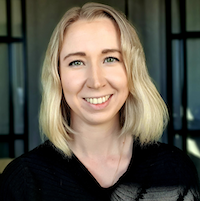The PhD defence will be partially digital, in room 1259, Abels Utsikt - Niels Henrik Abels hus and streamed directly using Zoom. The host of the session will moderate the technicalities while the chair of the defence will moderate the disputation.
Ex auditorio questions: the chair of the defence will invite the audience to ask questions ex auditorio at the end of the defence. If you would like to ask a question, click 'Raise hand' and wait to be unmuted.
-
Join the disputation
The webinar opens for participation just before the disputation starts, participants who join early will be put in a waiting room.-
Submit request to access (available from 10th March 1:15 pm until 24th March 1:15 pm)
Trial lecture
22th of May, time: 10:15 am, room 1259 and Zoom.
-
Join the trial lecture
The webinar opens for participation just before the trial lecture starts, participants who join early will be put in a waiting room.
Main research findings
Artificial intelligence and machine learning are increasingly used in many industries and applications, where more and more important decisions are being made based on machine learning models. However, recent research has shown limitations to many of the commonly used machine learning methods, such as lack of stability and transparency. As machine learning models are increasing their impact on many areas of people's lives, it is critical to ensure safe and responsible use of these methods.
This thesis addresses challenges related to the use of machine learning for safety-critical systems. These systems often involve complex physical relationships with a large degree of uncertainty and time dependency. An example of such a system is the Earth’s weather dynamics, where we explore it in the context of safe airplane landings and extreme weather phenomena.
The exploration is carried out by considering different ways to create more trustworthy machine learning models. This includes training the models to follow physical laws and mathematical constrictions, so that they behave according to the rules of system. We also explore how the models can provide explanations of their own behavior and information about their uncertainty, so that we know how they work and when we can trust them.
Adjudication committee
- Professor Pieter van Gelder, TU Delft
- Professor Tore Selland Kleppe, University of Stavanger
- Professor Tom Lindstrøm, University of Oslo
Supervisors
- Professor Arne Bang Huseby, University of Oslo
- Associate Professor Riccardo De Bin, University of Oslo
Chair of defence
Head of Department Geir Dahl
Host of the session
Professor Tom Lindstrøm, University of Oslo
